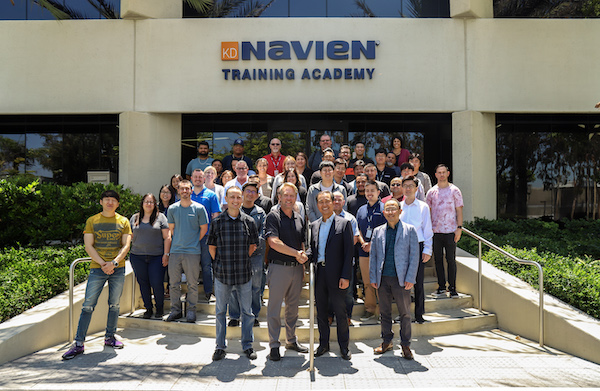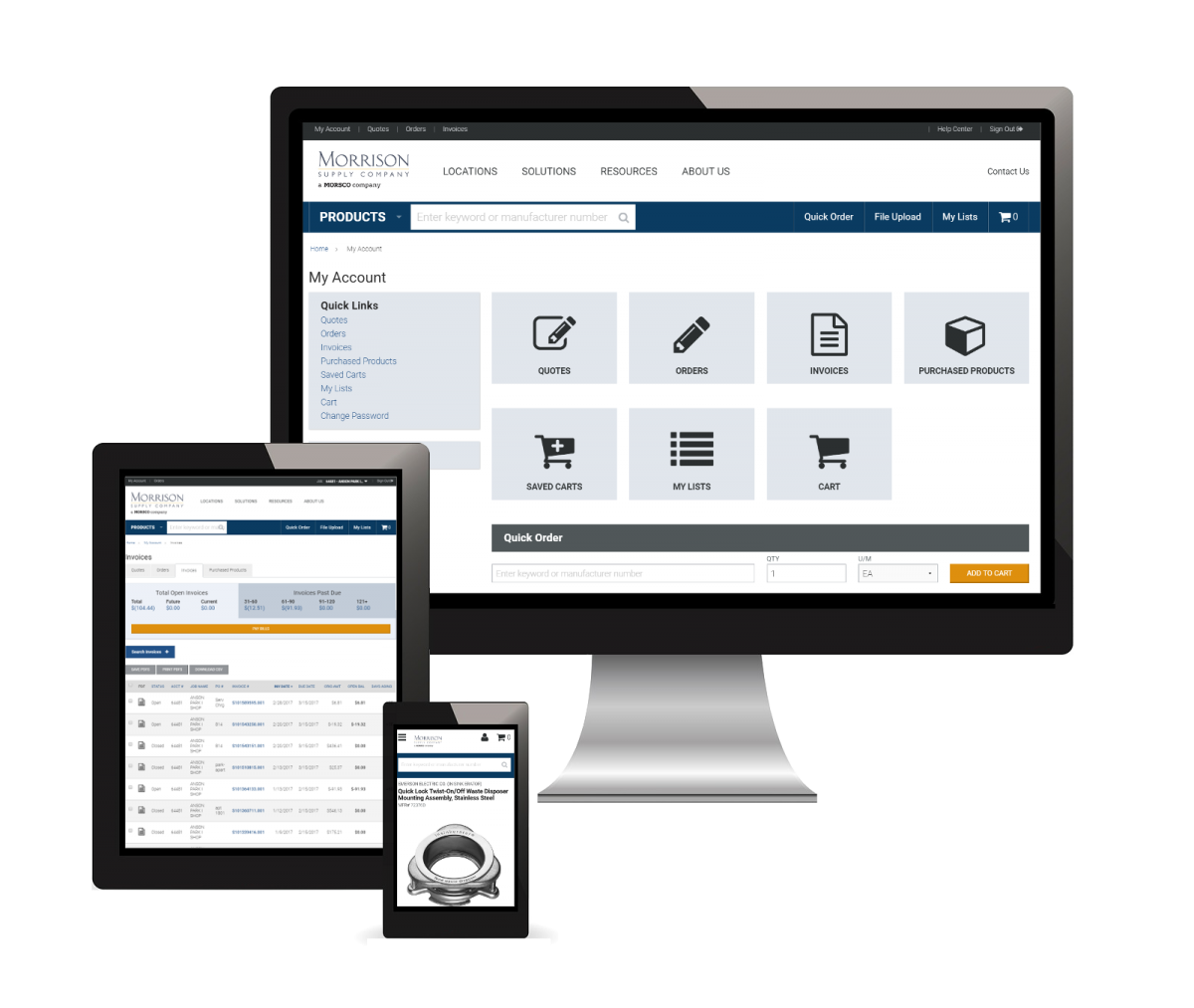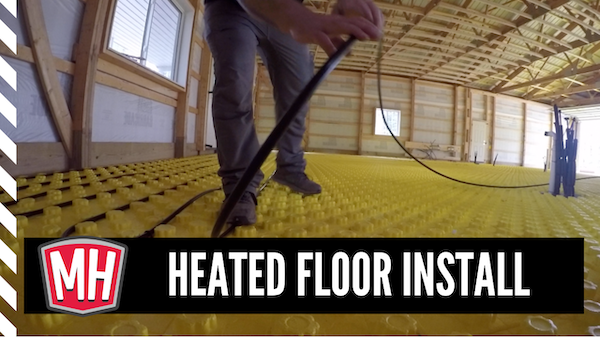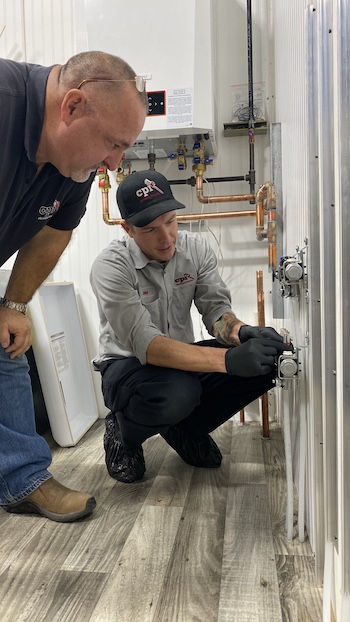It takes more than proper funding and well-performing employees to run a business successfully in the 21st century. You and your employees must have a growth mindset to take the business to the next level. The goal is to be ahead of all your competitors in the market, and for that, you must come up Read more
Whats New

It takes more than proper funding and well-performing employees to run a business successfully in the 21st century. You and your employees must have a growth mindset to take the business to the next level. The goal is to be ahead of all your competitors in the market, and for that, you must come up with smart business growth strategies.
Even though experts around the globe recommend doing research at the end of each year to predict the upcoming trends and come up with business growth strategies, it is easier said than done.
It takes a lot of planning and days of research to come up with strategies that contribute to the growth of a business. Plus, the COVID-19 pandemic has brought about so many new changes in the business world. Therefore, it’s high time you bid goodbye to most old practices and start fresh.
In this article, you will learn about 9 business growth strategies for 2022 that will assure your business success.

Focus on Creating a Powerful Company Culture
First things first, during the COVID-19 pandemic, almost all sorts of business organizations experienced a loss of employees. One of the many reasons behind this was that the definition of work-life balance has changed throughout the pandemic. Employees now have different sets of expectations from company culture, and to make your employees stick around, you need to understand their thoughts.
Other than focusing on boosting sales and revenue, it would help if you also made some changes in the company culture so that the employees find it exciting to be a part of your business. Once their productivity increases, higher revenue will be inevitable. Therefore, you must ensure that the employees don’t lose motivation and keep on feeling that they are a part of something amazing every day.
Rewarding your employees for their good work and making their learning process more interactive will show you great results in the long run.
Utilize Partnership Marketing
It’s not always about staying ahead of your competitors – sometimes, teaming up with other businesses can be extremely beneficial for the overall growth of your business. This is called “Partnership Marketing,” and research shows that utilizing this idea makes businesses reach a wider audience effectively.
Partnership marketing allows you to extend the reach of your business without stretching your resources.
Built a Strong E-Commerce Presence
We’re no longer in the old times where poster making and leaflets were a thing. Now, billions of people have access to smartphones and internet connections.
Therefore, promoting your business on the internet is the best way to reach audiences of all age groups.
When you build a strong e-commerce presence, your brand awareness grows so much more than you can imagine. Today, more and more customers are heading towards shopping online, and this is why having an e-commerce presence is extremely crucial.

Provide Support to Your Team
When you run a business, you understand that each person involved in it is crucial, and everyone has a role to play. And every person involved in your business deserves to have a good environment to work in.
Invest in your employees and team by providing them with an environment where they can be creative and learn with interest, and you will not be disappointed. Focus on creating a work culture in your business that turns the leader from a “boss” to a “coach” to the employees. Ensure that the employees don’t lose motivation when they make mistakes and become eager to learn and improve from them.
Once this part is sorted, you will see a significant difference in your business’s revenue other than employee satisfaction.
Prioritize Videos
Videos have been an attraction ever since its existence, and over the last two decades, YouTube has been a complete game-changer. It is the second most popular search engine globally, which shows how important video content is to people.
Video content has also brought some serious changes in the field of marketing. Marketers no longer need to spend months to come up with effective marketing strategies. Video content is one such tool that can bring a huge change to your business.
Now, you must be wondering how expensive making videos and hiring people to edit videos can be for your business. Here’s good news for you – you don’t need to spend a fortune and hire professionals to create world-class videos for your business.
Even a smartphone will be enough if you compose a good script and show your creativity. Editing the videos that you shoot on your phone can also be a really fun process. If you are in search of affordable options to edit videos to have professional results, using an online video editor is the best way out.
It takes a little bit of practice to master the video editors available online, but editing videos becomes a fun and relaxing task to perform once you do.

Focus on Digital Marketing
Social media has a huge impact on people around the world now, and every day, more and more people join social media platforms. Social media platforms became the best escape from reality when the pandemic hit.
Even if things were normal, social media would have had the same importance in people’s lives. It is known to influence decision-making as users buy products or opt for services after finding out about them on social media.
This is why so many businesses collaborate with social media influencers to promote their products to more audiences. Social media will continue to evolve, and platforms like Facebook and Instagram will continue to come up with new features to support business owners.
So, if you are not much active on social media, it’s high time you take it seriously and interact with audiences to boost your sales. Plus, when you connect with your customers on social media, you learn more about their problems, which helps you come up with products or services that can be beneficial for them.
Identify the Needs Before You Come Up with Solutions
Before you grow your business, you must understand what works for your business and what doesn’t. All the attempts you make for business growth will continue to disappoint you if you don’t understand what is acting as an obstacle to your business.
Making assumptions is easy, but when you ask follow up questions such as – “how does this benefit the customers?”, “what’s the reason behind this step we’re taking?” you come up with appropriate solutions that move your business forward.
Now, it can be a bit difficult to think from the customer’s perspective. For that, social media platforms can be of great help. By looking up the previous trends on social media, you can make assumptions about the customers’ needs.
The COVID-19 pandemic has made businesses go through a lot of obstacles that have made them embrace new challenges and become flexible. For growing your business effectively, embracing challenges and acting accordingly is a must.
Learn Video SEO Strategies to Have Higher Rank on Search Engines
As previously mentioned, video marketing has become extremely crucial for businesses, and since the competition is becoming harder every single day, it’s a must that you focus on learning video SEO strategies.
Now, it’s true that a well-made script beats high-end production, but a video needs to be promoted skillfully too. Your job doesn’t end when you post the video content on your social media platforms.
You also have to ensure that the titles and keywords you use for the video are relevant. When learning the SEO strategies and utilizing them on your videos skillfully, you see your videos on the top of your SERP (Search Engine Results Page). Also, by incorporating video content on your business’s official website, you make the visitors stay on your website for a longer period.
This makes search engines like Google think that your website has valuable content, and hence, your website gets featured on top of the users’ search results when they look up products or services related to your business.

Hire More Gig Workers
All business owners want good returns in fewer investments. If you are someone who wants to cut down the cost of hiring too many employees, you can consider hiring gig workers to get your job done. The number of freelancers and gig workers has increased a lot over the last few years, and it will continue to grow in the upcoming years as well.
When you hire a gig worker to do a specific task, you get amazing results in less time and save the cost of hiring and training employees associated with having a full-time employee for a business.
So, it’s a win-win situation because you get your job done in less time, cut down the cost of hiring and training full-time employees, and pay way less money for the professional result you get from the freelancer.
Conclusion
The nine strategies mentioned above are all you need to leverage to ensure growth and success in 2022. Changes can be scary, but if you plan things practically and carry out the plans effectively, you will soon reach your business goals with ease. Use an online video editor to benefit from the easiest way of marketing (through videos).
 Guest Author: Sanket Shah, is the founder of InVideo. InVideo serves millions of users from ~190 countries and we have raised $20M+ from the likes of Sequoia Capital and Tiger Global. We believe the future of video creation is in the browser, across devices, and collaborative.
Guest Author: Sanket Shah, is the founder of InVideo. InVideo serves millions of users from ~190 countries and we have raised $20M+ from the likes of Sequoia Capital and Tiger Global. We believe the future of video creation is in the browser, across devices, and collaborative.

Employee burnout has been a major concern since the outbreak of the pandemic. A 2021 study showed heightened incidences of burnout due to work-life imbalances as employees felt isolated from their working teams. According to the WHO, burnout can cause serious physical and psychological issues, including depression, diabetes, and heart-related disease. Since burnout can happen Read more
Employee burnout has been a major concern since the outbreak of the pandemic. A 2021 study showed heightened incidences of burnout due to work-life imbalances as employees felt isolated from their working teams. According to the WHO, burnout can cause serious physical and psychological issues, including depression, diabetes, and heart-related disease. Since burnout can happen to anyone, understanding some warning signs will enable you to easily identify burnout in your employees.

Physical signs
Physical symptoms such as chest pains, elevated heart rate, and panic attacks are usually caused by exhaustion and stress. It is also common to see employees losing appetite and sometimes weight. In some cases, you may notice employees gaining weight due to emotional eating to help them deal with stressful situations. It would be best to recognize these as genuine health and safety issues and discuss and encourage the employee to take the appropriate action.
Cynicism towards clients and coworkers
Keep an eye out for cynical attitudes in the workplace. Cynicism is a major indicator of employee burnout since it demonstrates a decline in workers’ enthusiasm for the job. Cynicism can also impact a person’s trust in workplace leadership or coworkers. Your workplace productivity can substantially decrease if this behavior is prevalent in your workplace culture. If employees are dissatisfied with how they are treated, words about your company’s shortcomings will spread quickly. At this point, you may notice employees openly speak negatively about the business, complain about customers, and will no longer be open to feedback.
Increasing irritability
A clash of personalities can lead to tensions in the workplace. However, when an employee suddenly can’t get along with anyone, it could be that they are under a lot of stress. Increased irritability is usually caused by feeling ineffective, unimportant, and less efficient. It is okay to consider conventional disciplinary actions against individuals who demonstrate excessive aggression or anger towards colleagues. However, consider how you can assist them in tackling the underlying cause of their action by addressing employee burnout.
Decreased performance and productivity
Burnout can affect everybody, including your most competent and hardworking employees. You will notice a decline in performance and productivity when employees lose their desire to give their best. As a result, they experience a loss of purpose for their work. Unfortunately, this can lead to carelessness with their work, and they become more prone to making unusual mistakes. However, research has shown that employees are more motivated to deliver in an innovative working environment where work is less stressful and more engaging. Consider acquiring the right services and tools to make staff jobs easier and more manageable. For instance, the merchant account available here can offer a hassle-free way to accept payments and run your business more efficiently. This eliminates the manual process your staff will usually have to go through, saving them some stress.
Employers usually misunderstand burnt-out employees as uncooperative lower performers. This means that such individuals may not get the needed help. Ensure to provide your staff with the needed support when you notice any of these signs to enable them to reengage and return to their previous performance levels.

Improving your product quality is critical for growing your business and long-term profitability. While this may not be a simple process, the benefits usually outweigh the challenges. Despite a recent manufacturing industry outlook showing positive growth indicators, you’ll have to work to experience this. And quality control is a crucial area to work on. Product Read more
Improving your product quality is critical for growing your business and long-term profitability. While this may not be a simple process, the benefits usually outweigh the challenges. Despite a recent manufacturing industry outlook showing positive growth indicators, you’ll have to work to experience this. And quality control is a crucial area to work on. Product quality can affect your brand reputation, so it can be useful to put measures in place to avoid the excess quality fallout, which can drag your business’s bottom line. Here are some tips worth considering.
Define product quality
It can be tricky to improve your product quality if you don’t know what it means. Quality could mean satisfying predetermined specifications or meeting customers’ expectations. Generally, product quality defines the ability of your product to satisfy user expectations. Therefore, find out how it is tailored to your customers, the problem it is designed to solve, its efficiency, and whether it may require fine-tuning. You can also measure the quality of a product by the ease of assembly, usage, and problem-solving abilities without any complications.
Build a quality-centered company culture
In an organization that builds a culture centered on quality, working teams are more likely to sincerely care about their work quality. This way, they won’t only be interested in satisfying regulatory requirements. True quality-centered culture is essential for creating a safe and effective product to improve and make life better. So it is no surprise that several manufacturing businesses have quality policies printed on their walls to ensure their staff can see and always keep them in mind.

Invest in the modern machinery
Your products will be more vulnerable to defects and mistakes when you depend mostly on human labor for your production. Fortunately, investing in quality, modern machinery can guarantee product accuracy and maintain high quality. Using newer machines can be more budget-friendly and boost your production speed than even skilled and experienced working teams. It would be best if you considered improving your machines and tools or replacing them with more latest versions. After upgrading your machines, invest in training your staff on their proper usage. Keeping your business updated with the latest industry machines and tools can guarantee higher product quality.
Keep an eye on your rivals
Monitoring your competitor’s activities is an excellent strategy to create and improve your product quality. Competitor analysis can help you identify market gaps, including competitors’ strengths and weaknesses. This way, you can develop a unique solution to their flaws and use it to improve and make your products more appealing. However, this doesn’t imply investing in matching your competitor’s delivery but positioning your business to compete with similar industry businesses.
Enhance traceability
Traceability entails tracking each stage of a product’s life cycle from raw material until the last shipping. This makes it easier to detect defects in the products, make analyses, and find the remedies for the problems. Traceability can help maintain your product quality while continuing production even after disruptions. This can lower production costs and enhance profitability since there will be less need for product rework.

Create a quality management system (QMS)
A QMS comprises internal rules that direct how your company creates and delivers high-quality goods. It matters little whether you produce or outsource goods. A quality management system can keep your business updated with the latest product quality requirements and standards. While implementing a QMS may impact your business’s overall performance, a 2022 report described it as crucial for achieving true quality. Building an efficient QMS can enable your business to meet consumer and regulatory requirements, check errors, cut costs, and continuously improve product quality. Maintaining a consistent product quality can also boost your business image and reputation.
Product and market testing
Research shows that testing is crucial for successful product development. So it is critical to test your products, predict how the market might react to them, and make the needed changes before official launching. Product testing benefits your business in several ways, including examining your product function in real-time and verifying that it meets expected quality, usability, and efficiency standards. Additionally, it can provide you with relevant insight into marketing strategies and the best ways to compete with existing products on the market. Lastly, market testing can enable you to streamline your product’s distribution, production, and support systems.
Establish cleanliness standards and guidelines
Prioritize keeping your workplace clean to guarantee improved product quality. It can be useful to establish cleanliness standards and procedures to keep your premises clean. Ensure that these standards and guidelines are visible in workplace areas so your employees can see and adhere to them. You can make this a part of the workplace culture by investing in cleanliness to provide a safe and healthy working environment for the employees. For instance, if there is dust in the air inside your manufacturing facility, there is a good chance that dust will settle on your products. Fortunately, installing dust collector bags can help keep the air clean inside your facility. This wouldn’t only improve your product quality but boost overall productivity levels.
Create a robust product strategy
Today’s marketplace is flooded with several new products. So it would help if you had a smart product strategy to stand out in the chaos. Creating a product from scratch can be challenging when you don’t have the ideas. However, this is no excuse to forgo creating an original product strategy. It is particularly important to do so, especially when many alternatives or solutions already exist on the market. You can engage your existing and potential customers to develop new ideas and strategically design your products. Having a clear product vision allows you to consider product goals which act as key performance indicators (KPIs). Prioritize these indicators to enhance your product function, features, etc.
Many professionals have various ideas about what quality is. However, ultimately, it should appeal to your target market. These tips ensure you produce high-quality products to delight and keep customers coming for more.

When you are looking to make the most of your opportunity in the construction industry it is important to give yourself the greatest chance of success. One of the key things that you need to try to focus on is coming up with ways of presenting yourself more effectively, and there are key elements that Read more
When you are looking to make the most of your opportunity in the construction industry it is important to give yourself the greatest chance of success. One of the key things that you need to try to focus on is coming up with ways of presenting yourself more effectively, and there are key elements that play a role in this.
Being able to improve and assess your career path as much as possible is important, and there are a lot of ways of achieving this. Your resume is one of the most important elements when you are trying to secure a job, and this is something that you have to make the most of right now. These are some of the key hacks that you need to make the most of when you are trying to improve your construction resume.

Focus Only on Relevant Skills
Focusing on relevant skills is one of the key things that you can do when it comes to making the right decisions for success as much as possible. There are a lot of things that you have to keep in mind when you are trying to develop success with this. However, one of the key things you need to keep in mind is to make sure you are listing only relevant skills on your resume. You might have very good PowerPoint skills, but unless they relate to the role you’re applying for, you don’t need to mention it. Something like experience in the field or a deep understanding of the different types of construction equipment, and how it’s used, would be relevant.
Show Qualifications
Showing your qualifications in the best way you possibly can is so important, and there are a lot of excellent ideas you can use to make the most of this. It is important to make sure you improve this process, and that you look at what you can do to improve your qualifications and make the right decisions for future success. Showing and illustrating important and pertinent qualifications on your resume is so important, and this is something you need to make the most of in order to help your resume stand out and make the best impression to secure construction roles.
Always Be Professional
There are so many elements that play a part in helping to make the perfect construction resume, and this is something that you need to make the most of as much as possible. There are a lot of ideas that you have to consider when it comes to making your resume stand out and come across as professionally as possible. You have to try to come up with some of the key ideas that will help you to present the most professional resume you can.
It is essential that you come up with ideas and techniques that will allow you to improve your construction resume. This is something that you need to make the most of, and there are plenty of great things that you can do with the perfect resume. Make sure you do as much as possible improve your resume and ensure it comes across in the best way to help you secure success in the field on construction.

No matter how good you are at your work or how talented your team is, there are always going to be times in the when customers complain about your work – it is just a fact of business life that you cannot please all of the people all of the time. It can be upsetting Read more
No matter how good you are at your work or how talented your team is, there are always going to be times in the when customers complain about your work – it is just a fact of business life that you cannot please all of the people all of the time.
It can be upsetting, frustrating, and annoying when you receive a complaint, especially if you do not believe that it is warranted, but it is important, when those complaints come in, that you stay calm and handle the issues in the right way. By doing this, you can keep your customers on side and minimize the potential damage to your company’s reputation.
Make it easy to complain
As a company owner, you probably don’t want to hear people complaining about the quality of the work or how much mess your contractors make, but it is going to happen eventually whether you like it or not, so it is a really good idea for you to make the complaints process as simple as possible.
Why should you do this? Because if a customer finds it almost impossible to find your constant information or actually get in touch with a complaint, they are always going to get more and more frustrated, so when they do finally get in touch with a representative of your company, they are going to be mad and much less likely to listen to reason or want to solve the problem amicably.
How do you make it easy to complain? Put your contact information front and center on your company’s website, and include a clear section on making complaints. Look at chatbot integrating into website services and make a live chat option available along with an AI chatbot so that customers can immediately find the information they need and get answers to some of the most common queries. Oh, and make sure you hire enough customer service staff to deal with complaints so that no one gets left hanging for too long.
 Provide training
Provide training
One of the things so many construction companies get wrong about customer service is that they do not think they need anyone trained in customer care to handle it. They let their secretaries or conservation staff answer the phones and deal with issues, and this is really not the optimum way to go about things.
Good customer service is much more complicated than you might think, It involves a delicate balance between actively listening to the customers, quickly coming up with solutions, and being able to negotiate in difficult situations. That means if you want to get the complaints process right, you need to hire and train good customer service staff and keep their training up to date as your business grows and changes.
Write it down
When a customer makes a complaint, you should try to create a written copy for both your records. This will help to ensure that you both understand the issue in detail so that the customer can not come back later and say you ignored X, Y, and Z or did not fix W when in fact they did not even bring that up as part of the complaint.
It is not unusual for customers to get confused about the nature of their complaints, so having a written record is a good way to protect yourself.
Of course, having a written record is also a good way to ensure you and your team know what issues you need to be looking into, and do not forget to act within an acceptable timeframe.
Don’t take it personally
One of the worst things you can do when someone complains about the quality of their build or the lateness of your employees is to take their complaint personally. You may be running your construction company as best you can, but that does not mean that things cannot go wrong from time to time or that you will not end up dealing with a customer who expects more than you can deliver.
If you get your back up and start getting offended by what they are telling you, it is very unlikely that you will be able to solve the issue amicably.
Take a deep breath, listen to what the customer has to say, and then take another deep breath. Acknowledge what they have said and why it upsets them and then calmly put your side across. Ask them what they would like to do to resolve the issue and try to find a way to meet them in the middle. You may need to negotiate for a while, but if you keep your cool, chances are you will be able to come to a mutually acceptable resolution in the end.
Do not discuss things with out of control customers
Of course, if a customer calls you with a complaint and they are so angry that they are seeing red, it is not really a good idea to engage with them, it is much better to find a way of politely calming explaining to them that you are eager to hear their complaint but you/ your employees will not be shouted at or talked to in a derogatory manner. If they do not calm down immediately, give them the details of how they can contact you at a later date and tell them you are going to put the phone down. Nothing good will come of getting into a fight with your customers, so in his instance, it really is better to disengage for a little while, at least.
Kill them with kindness
A good strategy for dealing with customer complaints is to simply kill them with kindness. Even the most defensive complaints will soon warm to your company if you offer them nothing but kindness and understanding and if you go out of your way to help them. So, be sure to thank them for their complaints and for bringing the issue to your attention. Let them know that you take complaints seriously and you want to get to the bottom of things. Basically, make them feel understood and listened to if you want to get them onside.

Think about what you can do
Once you have discussed the complaint, ask for a little time to think about the best course of action to put it right. Many customers will want an immediate response, but if you explain to them that taking as little time out will let you really think about the issues and how best to resolve them, most will be fine with that.
Then, you need to actually think about what you can do to rectify the issue. So, if your builders have dragged mud through a customer’s home, you could offer to pay for a carpet cleaning service to solve the issue or if they have made an error when installing a wall. You could have them go back and redo it. Often, though, it is much easier to come to a financial settlement with your customers when they are complaining.
Of course, you should always ask them what they expect to happen before you start thinking about what you can offer because this will give you a good idea of what they want and what kind of offer from you is most likely to be accepted and solve the problem as swiftly as possible with no hard feelings.
Don’t promise something you cannot deliver
Of course. When it comes to agreeing on a resolution, the worst thing you can do is to promise a solution that you simply cannot deliver on. If you do this, then you are only going to upset and infuriate your customer more and they will end up going on
If you are able to keep calm. Listen to the customer and do everything you can to resolve their complaints in a fair and amicable way, your business will be so much stronger as a result, and you will have many more satisfied customers in the end too.
Fail to do so and chances are they will take to the internet to leave bad reviews about your construction company, which is particularly bad news because no one wants to hire a dishonest and unreliable contractor to work on their property.
So. although it might be tempting to say you’ll send someone round to correct their faulty window installation in the morning unless you know you will have staff available to do so, don’t promise that and stick to only ever offering things you can honor!
Say sorry
Oh, and one more thing, it is always a good idea to apologize to the person who is complaining about your construction company, even if you think their complaint is unfair or unwarranted. It will disarm them and show them that you are a caring company that is not going to fob them off.
Your aim when dealing with complaints is to leave the customer with the best possible impression of you possible and that starts with a simple apology. So suck it up and apologize.
We hope this helps you to handle complaints more effectively in the future.


 Provide training
Provide training